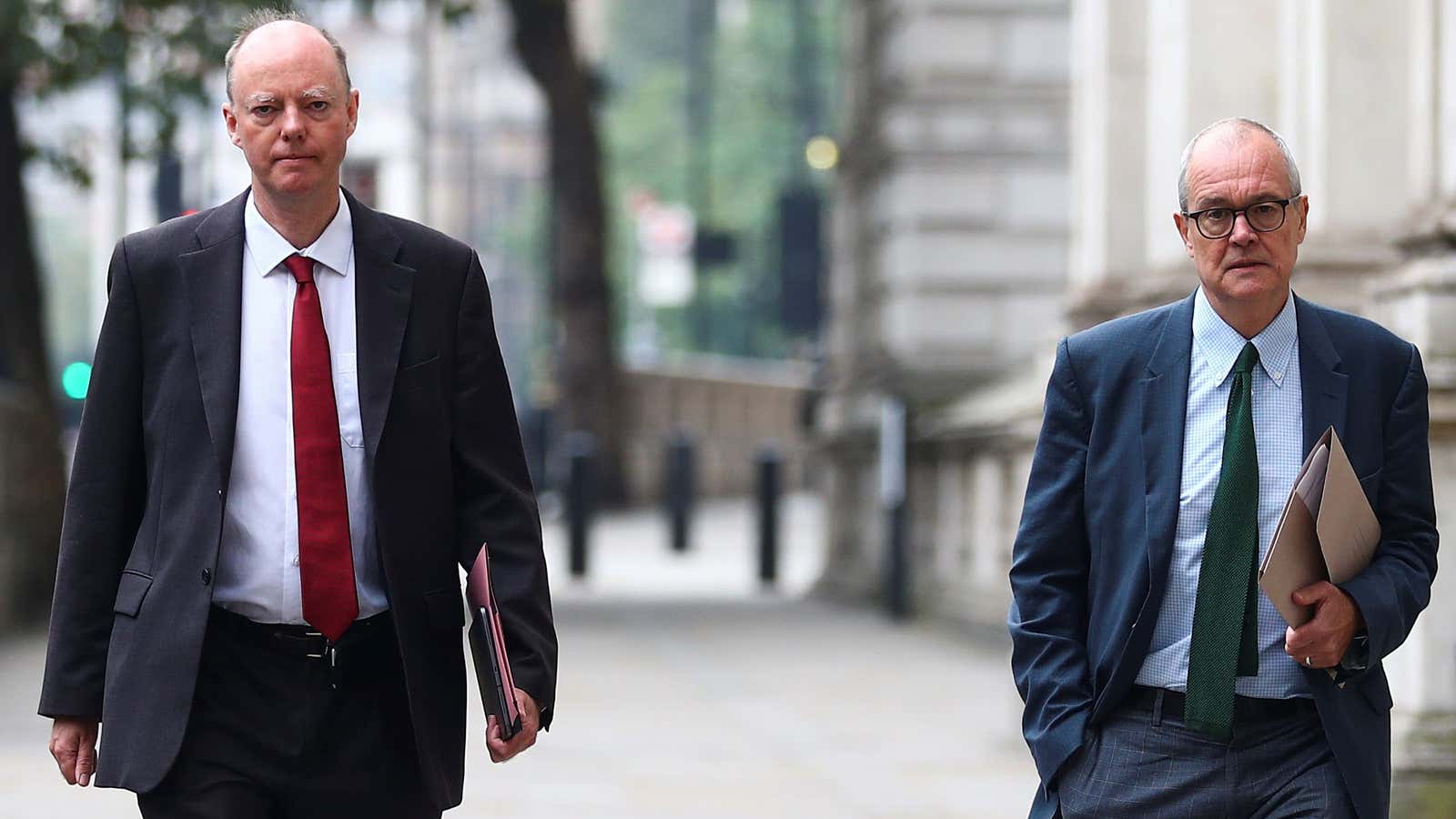The British government’s public health advisors have warned the public that coronavirus is a “six-month problem that we have to deal with collectively,” as cases double roughly every seven days across the UK, especially among younger people.
Chief medical adviser Chris Whitty and chief scientific adviser Patrick Vallance spoke in a briefing today (Sep. 21) about the UK’s Covid-19 situation. While they did not announce new public health measures, as some observers had expected, they made clear that the UK is heading in the wrong direction. Meanwhile, prime minister Boris Johnson will address the House of Commons on Tuesday.
There are currently around 70,000 cases of Covid-19 in the UK, Vallance said, and around 6,000 new infections per day. The surge in new infections is strongest among children between two and 11 years old—although the overall number of infected children is still relatively low—and young adults between 17 and 34.
While it’s true that some young (and not-so-young) people are flouting the rules by hosting parties or breaking self-isolation, the faster spread among this age group makes sense for other reasons. Schools have reopened across the UK and some have experienced outbreaks. Young people also make up a disproportionate amount of the UK’s service workers and are more exposed to the virus. And some data suggests that young people who test positive for Covid-19 are less likely to exhibit symptoms (pdf), meaning it’s likely that young people who don’t know they have Covid-19 could be spreading the virus. This is not just a UK phenomenon; it’s happening all over the world.
The briefing contained some good news. According to Vallance, 17% of the population in London could have antibodies, which could help slow the spread of the virus there. Whitty also pointed out that we now know how to treat Covid-19 better. And they were optimistic about the prospects of finding a successful vaccine and even distributing it to some key groups by the end of the year.
But they both emphasized the need for immediate action, including through breaking what Whitty called “unnecessary links between households.” Overall, only about 8% of the population have antibodies, and if nothing changes, Whitty said, there could be as many as 50,000 new cases a day by mid-October and 200 new deaths a day by mid-November.
“If we do too little, this virus will go out of control.”
